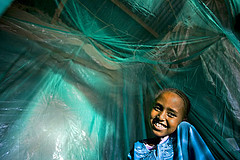 Even today, over a month later, thousands are in desperate need of help in Haiti. It has been encouraging to see the global community come together in the moment of crisis to help an entire country recover from near total destruction. But this post isn’t about Haiti. It’s not about devastation we saw when Katrina or the Tsunami hit or the carnage of lesser publicized natural disasters in China, Pakistan and Iran over the last several years. This also isn’t about belittling the need in those moments or the compassion and outpouring of goodwill that it sparks.
Even today, over a month later, thousands are in desperate need of help in Haiti. It has been encouraging to see the global community come together in the moment of crisis to help an entire country recover from near total destruction. But this post isn’t about Haiti. It’s not about devastation we saw when Katrina or the Tsunami hit or the carnage of lesser publicized natural disasters in China, Pakistan and Iran over the last several years. This also isn’t about belittling the need in those moments or the compassion and outpouring of goodwill that it sparks.
This is about what we are going to do between those moments. How we are going to live when the images fade away from the public attention and the relief effort coffers are full. What will our generosity look like when the need isn’t for a one-time “act of god” disaster, but for the daily un-natural disasters of poverty, contaminated water and disease. How will we respond when our interaction with these realities is an occasional commercial of a desolate child needing sponsorship? Just one of the millions of children across our globe struggling to survive, one of 30,000 dying every day of diseases we can treat, lack of clean water we could fix, or economic disparities our nations helped create.
It almost feels good responding to a natural disaster. There was nothing you could do beforehand to stop what happened, but now you can open your wallet, with no guilt, and only pity and charity, and help these unfortunate people in their time of need. It’s a one time thing, you can even sacrifice a little bit, and then you can move on and go on about your life.
What if the equivalent of the Haiti earthquake happened every week? And what if you knew it was going to happen the following week and the week after that and the week after that. What if it was an un-natural disaster that you could actually do something to prevent? What if God had given you and many others who believe “love your neighbor as yourself” the resources to stop this disaster, to turn the tide? What if you could stop an earthquake?
Today you have an opportunity to stop an disaster, tomorrow you’ll have the chance too. Will you stand in the way of the disaster of Malaria? Contaminated drinking water? Education? Will you make sacrifices, live differently, alter your decisions in the same way you did when the earthquake struck? Will you appeal to friends and rise up a community response to the desperate needs in your community or around the globe?
Great post. I would challenge everyone to get involved with a cause and get wildly passionate about it. The one I am involved with is Compassion International, which just happens to address the issues you stated in this post.
Thanks Jason. I think your right about getting passionate about a cause, especially as an opportunity to inform others. I also think it's possible for all of us to be passionate about a lot of causes and address the disparities and issues that exist. However, that takes major sacrifices, life-changing decisions, rather then just minor changes. But, I think we are and should be willing to go that far. How about you?
I think it would depend on what one THINKS need to be sacrficed.
You make an excellent point. As a believer, a constant frustration of mine is finding loving, but also effective, ways to encourage, inspire or convict comfortable folks away from their (often Christian) bubbles, and to more deeply reflect, pray (and act on) the "disasters" of day-to-day grinding life most of the rest of the world lives and dies with.
In America, we love huge dramatic events — good or bad doesn't matter. You're right, we "feel good" responding to a huge event. You're also right that it does accomplish an immediate good when we get out our checkbooks, credit cards, and now send texts, in response to a huge event. We should continue to do so. Nonetheless, I share your hunger for a time (sooner than later) when more of us will get as jazzed up about, as you wrote, what goes on in between these "events."
Grace and Peace,
Mark
My recent post Statistics and fear
Mark, Thanks for the feedback. I wasn't sure about saying that about how responding makes us "feel good." But I couldn't think of a better way to acknowledge that fact. You put it better then I did. Thanks.
Great article! Ariah
Debra
Thanks Debra,
This is why I need to get back to the writing group. Sometimes you write something and then get very little feedback and you wonder if you just missed something. At least at the writer's group your guaranteed to get some input. Miss that.
Peace.